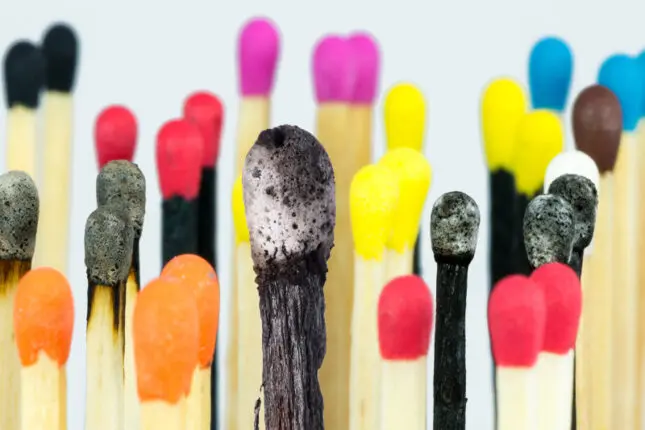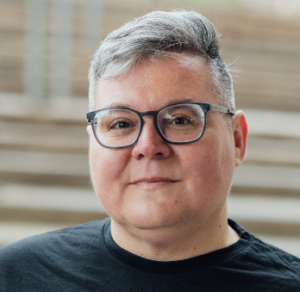Enjoy the audio preview version of this article—perfect for listening on the go.
“I’m worried I’m going to disappoint you,” Jade says quietly. I take a deep breath and notice my heart aching for the young supervisee in front of me. I suspected something was brewing from Jade’s backlog of unwritten session notes and unanswered emails. This cohort of prelicensure therapists, some of whom I’ve known since their internships, has gone through many things graduate school didn’t prepare them for: a pandemic, which meant learning how to be a therapist via telehealth before they even sat in a room with a client; a national uprising for racial justice and Black liberation that had been sparked by a brutal murder in our own city of Minneapolis; and the hardships of becoming a therapist. Some of them have gone through all of this while holding marginalized identities that are too often met with micro- and macroaggressions not only from outside the field, but from professors, clinical supervisors, and colleagues.
“You can’t disappoint me, Jade. You’re an excellent emerging therapist. I know you have a lot of notes to write, but that’s not uncommon for people at your stage of professional development. We can figure out some strategies, unless there’s something else . . .?” My voice trails off as I leave space for their answer.
Jade sits up a little straighter. “I’ve decided not to pursue licensure. If I can’t make it in a practice as supportive as this, I’m not sure being a therapist is for me.”
My supervisor’s heart breaks just a little for another therapist lost to our field while my words explore the reasons behind Jade’s decision. I provide them with reassurance that I’m not disappointed, just sad that our field could not do better by them.
When I first became a supervisor several years ago, this kind of conversation was fairly rare, but it seems to happen more frequently nowadays. What’s changed, especially for minoritized supervisees? While our field has been somewhat successful in attracting a more diverse range of students, we haven’t adapted to meet their needs or the challenges presented by these politically turbulent times.
Every week, I witness the consequences of an ever-increasing allostatic load—amplified by the impact of the climate crisis, multiple genocides, late-stage capitalism, and an openly transphobic, ableist, racist and xenophobic cultural environment—pressing on the shoulders of prelicensure and licensed colleagues alike. But for the former, especially those who’ve been marginalized, this impact seems far greater since they haven’t yet developed the tools or networks that might help them bear it. And it’s causing them to burn out prematurely or to leave the field altogether.
This is, in many ways, understandable. Alongside my disabled supervisees, I’m deeply affected by the current attacks on many aspects of the Americans with Disabilities Act. With my trans and nonbinary supervisees, I fear what devasting news will come across my screen on a daily basis. What new hate crime, traumatic event, or executive order will lead us and our loved ones to wonder whether any of us can ever truly be safe, even in refuge states? Those of us who are immigrants have been triggered by the countless ICE raids. Indigenous communities continue to be devastated by ongoing genocides, while Black and Brown people keep experiencing never-ending cycles of racism and anti-Blackness. This is not the world graduate school prepared me or many of my supervisees for.
Given the small number of minoritized clinical supervisors in mental health, minoritized supervisees often experience supervision that’s culturally misattuned—even harmful—on top of everything else. How do we guide the minoritized prelicensure and early-career therapists in our care through this landscape that seems full of land mines at every turn, especially if we’re impacted by the same systems of power, privilege, and oppression? I don’t have any magical formulas, but I do have some guiding principles.
First, it’s important to acknowledge the current cultural climate, as well as the challenges faced by minoritized supervisees, without denying or minimizing the increased allostatic load they carry. This might seem simple, but it can often be a missing element in the supervisory relationship. Reducing the obstacles our supervisees share with us to individual problems only reinforces a sense of moral failure in them. To avoid doing that, we need to honestly and critically look at the messages we’ve internalized in our training and professional development. For example, we might have unrealistic expectations about the number of direct client-contact hours a prelicensure clinician might be able to provide, especially via telehealth, while dealing with significant systemic issues or the low levels of pay we expect early-career clinicians to unquestioningly accept. It’s important we educate our supervisees about how insurance reimbursement works and the hidden costs of running a therapy practice, as well as support them in deciding which direction to go in their career.
Another vital element of supervision, often sacrificed due to time constraints, is our self-of-the-therapist work—reflective, personal healing that’s essential for us to become more self-aware and address any unresolved or lingering issues that might impact our clinical practice. This work is especially critical for supervisees who are minoritized and face micro- and macroaggressions on a daily basis. They need us to directly ask about mental health issues that commonly occur in the face of systemic oppression: depression, anxiety, substance use, and suicidality. Sadly, those issues are often considered taboo in supervision or are approached in a punitive manner, like when a supervisor says, “I think you should stop seeing clients immediately,” rather than addressing them in an open, supportive way. This can lead many early-career clinicians to hide their struggles from their supervisors until it’s no longer possible, and in some cases, until after they’ve been significantly harmed.
Those of us who are supervisors are ultimately responsible not just for our individual supervisees or mentees, but for the legacy we leave in the field of mental health. Are we committed to creating and nurturing spaces in which minoritized supervisees can more safely and effectively practice and grow as clinicians? Are we advocating not only for more diversity in the field, but also for just practices in education, employment, and clinical supervision? Are we ready to bring the shadow aspects of our field, especially in clinical education and supervision, into the spotlight?
Until we do so, promising therapists like Jade—exactly the kinds of therapists we want to attract—will prematurely burn out and leave the field. How many people like Jade are we willing to lose before we’ll face the reality that our field needs to change to provide a healthier practice environment for minoritized prelicensure and early-career clinicians? While Jade is doing just fine and is much happier using their skills for coaching and dedicating more time to their artistic career, the field of mental health is poorer for their absence.
Alex Iantaffi
Alex Iantaffi, PhD, MS, SEP, CST, CST-S, LMFT (they/he/lui) is an award-winning author, family therapist, WPATH certified gender specialist, AASECT certified sex therapist, Somatic Experiencing practitioner, clinical supervisor, and mentor. They’ve researched and published extensively on gender, disability, sexuality, trauma, and relationships and are the author of many books, including Gender Trauma: Healing Cultural, Social, and Historical Gendered Trauma and How to Understand Your Relationships, coauthored with MJ Barker. Contact: www.alexiantaffi.com.













